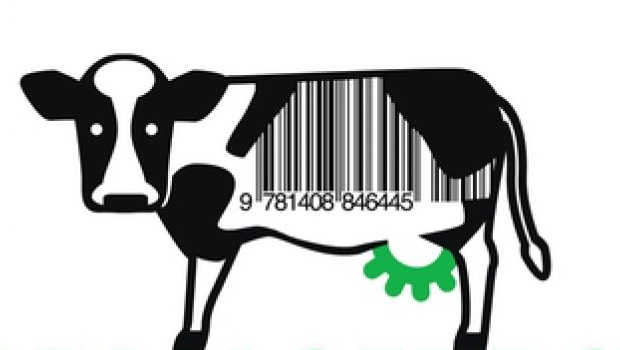Farmageddon: The True Cost of Cheap Meat by Philip Lymbery with Isabel Oakeshott
| Press reviews | Buy the book | Have your say |
Blurb: Farm animals have been disappearing from our fields as the production of food has become a global industry. We no longer know for certain what is entering the food chain and what we are eating – as the UK horsemeat scandal demonstrated. We are reaching a tipping point as the farming revolution threatens our countryside, health and the quality of our food wherever we live in the world..
Read more
* Our health is under threat: half of all antibiotics used worldwide (rising to 80 per cent in US) are routinely given to industrially farmed animals, contributing to the emergence of deadly antibiotic-resistant superbugs
* Wildlife is being systematically destroyed: bees are now trucked across the States (and even airfreighted from Australia) to pollinate the fruit trees in the vast orchards of California, where a chemical assault has decimated the wild insect population
* Fresh fish are being hoovered from the oceans: fish that could feed local populations are being turned into fishmeal for farmed fish, chickens and pigs thousands of miles away
* Cereals that could feed billions of people are being given to animals: soya and grain that could nourish the world’s poorest, are now grown increasingly as animal fodder
* Epidemic waste underpins the mega-farming model: while food prices rocket, surplus food is thrown away
Farmageddon is a fascinating and terrifying investigative journey behind the closed doors of a runaway industry across the world – from the UK, Europe and the USA, to China, Argentina, Peru and Mexico. It is both a wake-up call to change our current food production and eating practices and an attempt to find a way to a better farming future.
(Bloomsbury, 2014)
Alex Renton, London Evening Standard
“The enviro-shocker is not a genre known for readability but this is unusually punchy and fast-paced … As a devoted but worried carnivore, I thought I knew most of the nasties around “mega-farming” — the de-beaked chickens, the medicated salmon, the feed-lot dairy cows who are exhausted of milk and life after three years rather than 15. Roaming the world, from China to Peru, Lymbery and Oakeshott uncover a lot more.”
Felicity Cloake, New Statesman
“Because of Lymbery’s role at Compassion in World Farming, I had expected to read more of the gruesome details of mistreatment, but Farmageddon’s main focus is on the future and how we can bring about change. As he explains in the introduction, “this is not a ‘poor animals’ book” – it’s far more interesting than that. Lymbery’s conclusion is not that we should all go vegetarian, or that only small, traditional farms hold the key to sustainable food production. Instead, the book is more concerned with how business can make a difference, arguing that commercial success and bad practice are not inevitable bedfellows…”
Lucy Siegle, The Observer
“In terms of getting your knickers in a twist, Farmageddon has something for everybody. The thing that really upsets me (which Lymbery and Oakeshott prove carefully throughout) is that during the rise and rise of intensification we’ve failed to acknowledge and explore other, sustainable production systems, such as organic farming with higher animal welfare standards, by putting all our (caged) eggs in the intensification basket. Any alternative system has been cast as niche or bonkers.”
Tristram Stuart, The Guardian
“Lymbery rightly focuses on how much meat we eat: on average, in rich countries we eat two to three times more than is recommended. But the other side of the equation is how many people there are in the first place. When is population going to become an accepted part of the food debate? … Lymbery brings to this essential subject the perspective of a seasoned campaigner – he is informed enough to be appalled, and moderate enough to persuade us to take responsibility for the system that feeds us.”
Ross Clark, The Times
“Farmageddon does add to the debate on food and farming. It brought to my attention a few things I knew little about, such as the trade in fishmeal as an animal feed. But there is one big thing missing: any consideration of the costs, especially on the poor, if mankind were to give up industrialised farming. Much as Lymbery tries to convince us that Western consumers are enjoying their cheap meat on the backs of the world’s poor, there is much evidence to suggest that industrialised farming is helping to improve nutrition worldwide.”
Read full review (£)
Bryan Appleyard, The Sunday Times
“So far, Europeans have resisted the worst excesses of the Americans and the Chinese, but the clear message here is that our regulators may lose their nerve. The real problem with all this is suggested by the names of those giving the book approving quotes (Jilly Cooper, Joanna Lumley, Jonathon Porritt and Hugh Fearnley-Whittingstall). This is a cause embraced by famous, comfortably off people, not by the poor … Furthermore, the tone of the book is a little too shrill for my taste; as a result, more subtle issues tend not to get a hearing … But one cannot argue with the book’s central contention. There is, indeed, something mad and dangerous about farming today, something, above all, unnatural.”
Read full review (£)
Buy the book
Amazon | Foyles | Hive | Waterstones
OMNISCORE:












